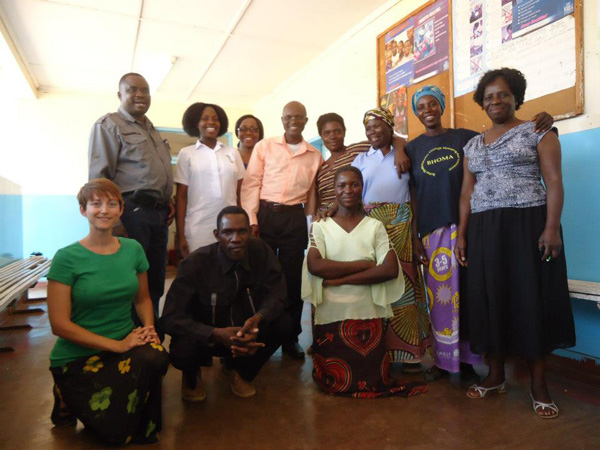April Biasiolli, a 2011 master’s graduate, recently moved to Lusaka, the capitol of the southern African nation of Zambia, to accept a fellowship with the Centre for Infectious Disease Research in Zambia (CIDRZ).
Funded by USAID, the National Institutes for Health, the Doris Duke Charitable Foundation, CIDRZ is an NGO that works in partnership with the University of North Carolina, the University of Zambia, and the Zambian Ministry of Health. It is strongly committed to combining the provision of high-quality services with sound research to improve Zambia’s health.
One of CIDRZ’s program’s – Better Health Outcomes through Mentoring and Assessment (BHOMA) – works to reduce mortality by improving clinical care in rural clinics. BHOMA standardizes procedures, mentors clinical staff, oversees performance indicators, and works closely with health workers to provide education and increase health-seeking behaviors.
April is part of the evaluation team managing and analyzing data on community health worker oversight using lot quality assurance sampling (LQAS) methods.
In addition, she is planning an assessment of BHOMA’s integration of traditional birth attendants (TBAs) into the formal health care system. To do this, she analyzes the data, conducts participant-observation of TBA training, interviews clinic staff, and holds focus groups with the TBAs.
She is also doing her best to become fluent in ChiNyanja, one of the many local languages.

In her spare time, April is completing a graduate certificate in public health at the University of Texas, Houston, preparing manuscripts from her previous work, and exploring Zambia, including the spectacular Mosi-oa-Tunya (“thundering mist”) or, Victoria Falls, as it is better known.
When her fellowship ends in July 2013, April plans to backpack around Africa and Europe before returning to the US to work in public health, start a family, and eventually pursue a doctorate.
She hopes to continue to combine the theoretical and qualitative approaches of anthropology with the applied and quantitative approaches of public health.
The Department of Anthropology congratulates April and wishes her much success in her work in Zambia!